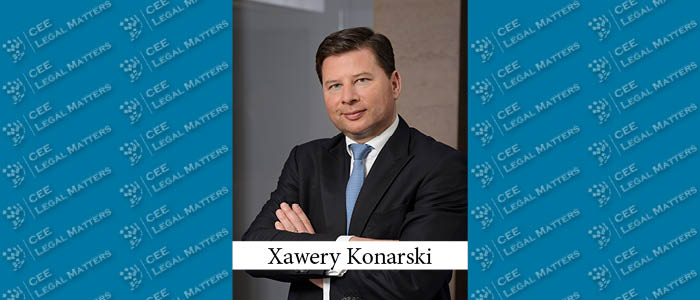A busy legislative start to 2023 is in store for Poland, with significant changes made to the consumer protection and electronic communication frameworks, as well as amendments to the Legal Advisors' code of ethics being introduced, according to Traple, Konarski, Podrecki & Partners Senior Partner Xawery Konarski.
“First of all, it is worth mentioning that there has been a comprehensive change to the consumer protection legislation landscape since the start of the year,” Konarski begins. “The change came on the coattails of Poland implementing three crucial EU directives and is a very horizontal one – impacting both online and offline dealings.” As he reports, the Competition Office, which is in charge of overseeing consumer protection matters, will be “quite tough in its approach to ensure that all the requirements the amendments introduce are met quickly.”
According to Konarski, the most important changes tackle “unfair competition practices on the Internet, such as leaving fake reviews of products. Additionally – if your business is a platform that ranks internet shops – the ranking criteria must now be transparent and indications must be made if there was any paid positioning.” Finally, he says that the most important “offline innovation is the requirement of discount promotion notifications – you have to notify your customers what the lowest price of a product was within the past 30 days. This is a decisive method of combating fake promotions, for example, those that sometimes appear around Black Friday,” he explains.
Furthermore, Konarski reports changes to the European Electronic Communication Code. “The changes were supposed to be implemented two years ago, yet the draft law stands before parliament only now. The government decided to add some provisions that were not in the directive and which could potentially affect all internet users,” he says. “The government added a proposal that would enable both it and the intelligence services to have automatic access to internet communication data, such as WhatsApp or emails. This spurred serious parliamentary discussions with respect to privacy intrusions,” he points out.
Finally, Konarski highlights a new code of ethics that the “Legal Advisors Association passed at the start of the year. This new regulation introduces an extremely stringent set of rules when it comes to conflicts of interest.” According to these changes, “conflict exists even in the instances where one partner of the firm represents, for example, a large pharmaceutical company, with another partner representing a generic drug company – without any links, other than these sectors being connected – it’s a conflict,” he explains. Under the new rules, the law firm would have to apply for special client approval and to apply special technical measures to erect a privacy wall to keep client file access separate. “While these changes affect only Legal Advisors and not Attorneys at Law, it is easy to see how large organizations with dozens of lawyers could encounter problems in organizing their work,” Konarski concludes.






















